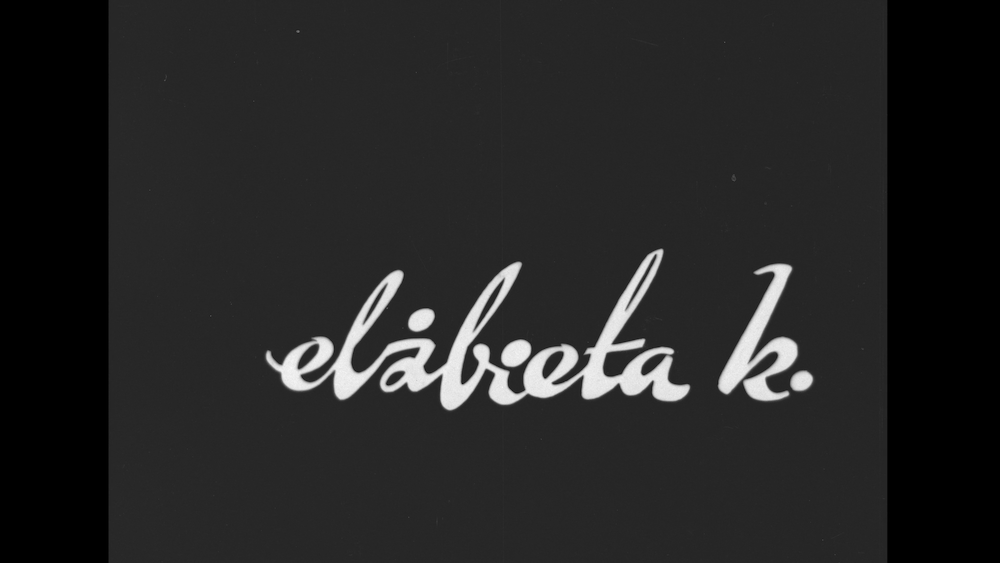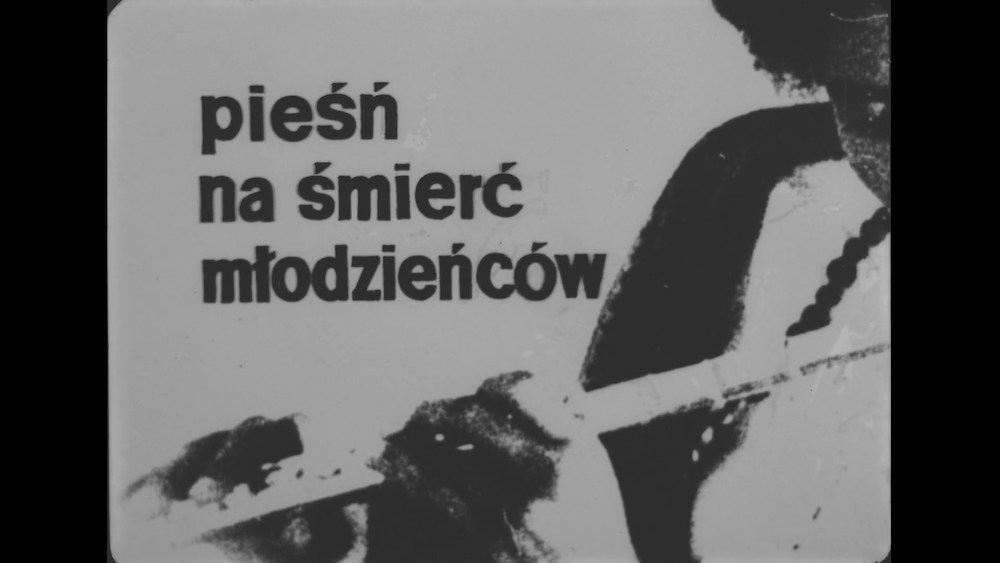
Mostafa Derkaoui, film still from Titre Provisoire [Working Title], 1984
(4.1)
MOSTAFA DERKAOUI

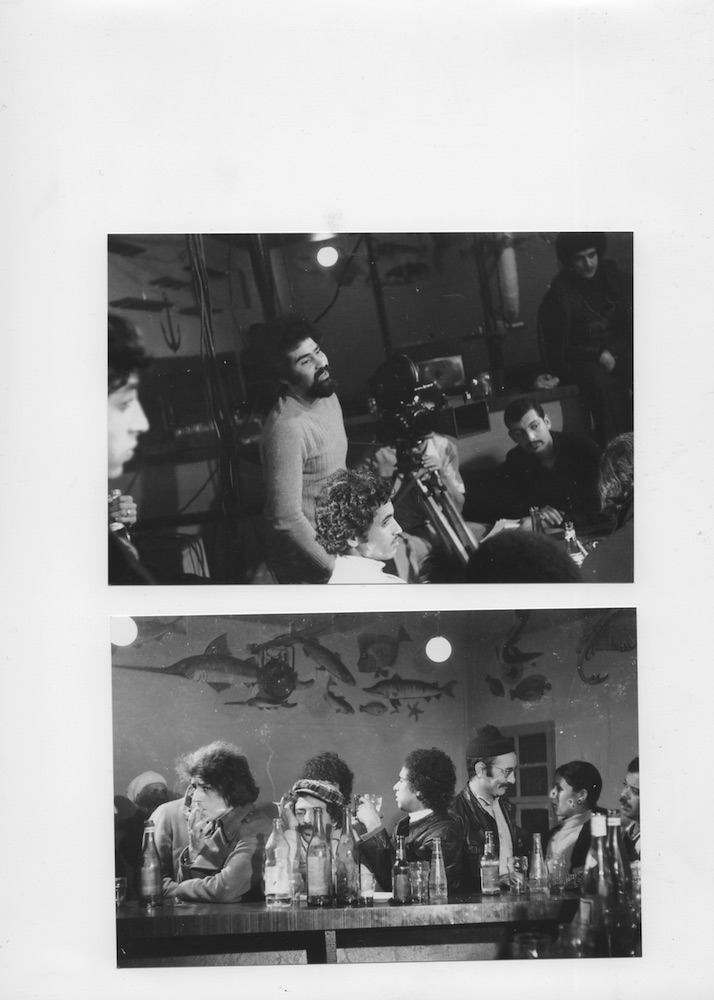
︎
On the set of the Mostafa Derkaoui’s film De Quelques Evènements Sans Signification [About Some Meaningless Events], 1974, Abdelkrim Derkaoui archives
Mostafa Derkaoui is a filmmaker and pioneer of modern Moroccan cinema, born in 1944 in Oujda, Morocco. He graduated from the Lódź Cinema School and lives in Casablanca.
Since returning to Morocco in 1972, he has continued the explorations he began in the student films he made in Poland, for a free and socially-engaged cinema that could contribute to both decolonial thought and the search for a Moroccan cinematic identity, and which would also encourage formal innovation and radicality.
His avant-gardist vision was to come up against the official and repressive one of the 1970s Moroccan state (and of the remaining colonial institutions). His first film, De quelques événements sans signification [About Some Meaningless Events, 1974], made with a collective of Casablancan artists and intellectuals, was banned. It was later restored by the Filmoteca de Catalunya and L’Observatoire Art et Recherche in 2019.
A philosophy student in Casablanca in the early 1960s, Derkaoui was passionate about theatre, but one of his first plays was banned for political reasons during the period of repression of the far left and the opposition under Hassan II.
He then left for France and spent a year studying at the Parisian film school, IDHEC. After a brief return to Morocco and the making of a first short film, "The Four Walls", produced entirely independently and now lost, he went to study at the Łódź Film School in Poland along with his brother, cameraman and director Abdelkrim Derkaoui.
Since returning to Morocco in 1972, he has continued the explorations he began in the student films he made in Poland, for a free and socially-engaged cinema that could contribute to both decolonial thought and the search for a Moroccan cinematic identity, and which would also encourage formal innovation and radicality.
His avant-gardist vision was to come up against the official and repressive one of the 1970s Moroccan state (and of the remaining colonial institutions). His first film, De quelques événements sans signification [About Some Meaningless Events, 1974], made with a collective of Casablancan artists and intellectuals, was banned. It was later restored by the Filmoteca de Catalunya and L’Observatoire Art et Recherche in 2019.
A philosophy student in Casablanca in the early 1960s, Derkaoui was passionate about theatre, but one of his first plays was banned for political reasons during the period of repression of the far left and the opposition under Hassan II.
He then left for France and spent a year studying at the Parisian film school, IDHEC. After a brief return to Morocco and the making of a first short film, "The Four Walls", produced entirely independently and now lost, he went to study at the Łódź Film School in Poland along with his brother, cameraman and director Abdelkrim Derkaoui.
In Łódź, Derkaoui directed four short films, trying his hand at both documentary and fiction, and wrote a thesis on “The role of cinema in transforming and elevating consciousness”. He was also very active in political, theatrical and student life of the time, while supporting the struggles for democracy and the fight for human rights in Morocco. For his student film "Ludzie z piwnicy" [People from the Cellar], he went to Paris after May 1968 and filmed debates at the Estates General of Cinema. These images, which are now missing except for the extract used for his film, are among the rare filmed traces of these historic meetings.
Speaking about his first feature-length film in an interview with the poet Mostafa Nissaboury, (“Pour une dynamique du cinéma collectif” [Towards Collective Filmmaking], Integral, n°8, 1974) Mostafa Derkaoui stated his desire to propose:
“An experience that is thoroughly ours, that doesn’t repeat other experiences from capitalist countries or those known in the Third World, such as in Algeria, Egypt, and Brazil.”


︎ M
ostafa Derkaoui and Barbara Brylska, Poland, 1960s
︎ Abdellah Drissi and Mostafa Derkaoui, Poland, 1960s, Abdelkrim Derkaoui
︎ Abdellah Drissi and Mostafa Derkaoui, Poland, 1960s, Abdelkrim Derkaoui
Mostafa Derkaoui’s films include Les beaux jours de Shehrazade (1980), Titre provisoire (1984), Les sept portes de la nuit (1994), La grande allégorie (1995), Les amours de Hadj Mokhtar Soldi (2000), Casablanca by Night (2003), and Casablanca Day Light (2004). The French director Sophie Delvallée has made a film that traces his artistic career, "Librement Mostafa Derkaoui" (2022). The Marrakech Festival paid tribute to him in 2007.
Considered to be one of the most important Moroccan filmmakers, Derkaoui’s cinema is modernist, in its constant questioning of cinematographic codes and language, fed by references drawn from theatre, literature, intellectual thought, and music.
Derkaoui’s cinema is hugely personal, right from his first film studies, filled with his encounters with jazz musicians such as Nahorny and Wanda Warska (the wife of Kurylewicz, a pioneer of Polish modern jazz), opposition intellectuals such as Stanislaw Tym, and actresses such as Barbara Brylska, the Polish Brigitte Bardot of the time. In Morocco, his films featured the painter Farid Belkahia, the writer Mohamed Zefzef, the actress Touria Jabrane, the singer Najat Atabou, and his own wife, Khadija Nour.
Considered to be one of the most important Moroccan filmmakers, Derkaoui’s cinema is modernist, in its constant questioning of cinematographic codes and language, fed by references drawn from theatre, literature, intellectual thought, and music.
Derkaoui’s cinema is hugely personal, right from his first film studies, filled with his encounters with jazz musicians such as Nahorny and Wanda Warska (the wife of Kurylewicz, a pioneer of Polish modern jazz), opposition intellectuals such as Stanislaw Tym, and actresses such as Barbara Brylska, the Polish Brigitte Bardot of the time. In Morocco, his films featured the painter Farid Belkahia, the writer Mohamed Zefzef, the actress Touria Jabrane, the singer Najat Atabou, and his own wife, Khadija Nour.
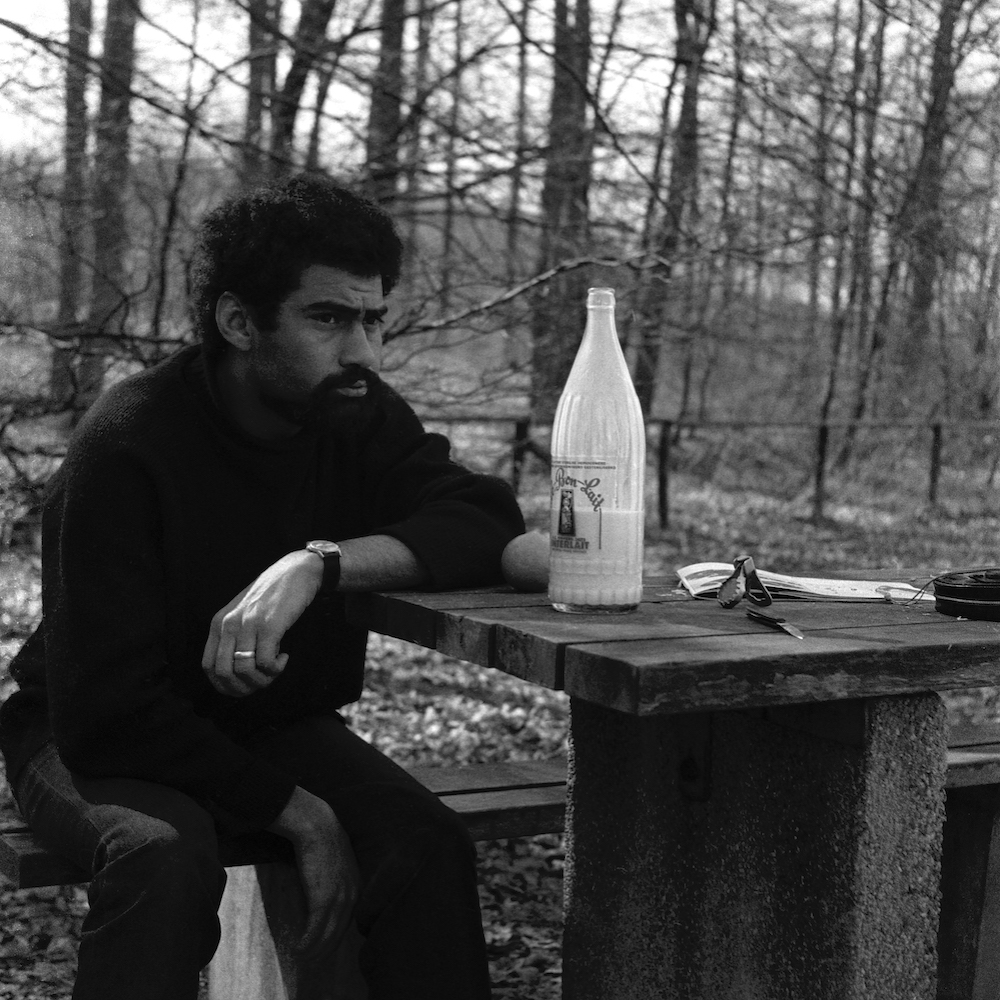
︎ Mostafa Derkaoui, Germany, 1969, Abdelkrim Derkaoui
FILMOGRAPHY IN POLAND:
AMGHAR
Mostafa Derkaoui, 4 min, 1968, PWSTIfADOPCJA
(ADOPTION)Mostafa Derkaoui, 4 min, 1968, PWSTIf
LUDZIE Z PIWNICY
[PEOPLE FROM THE CELLAR]
Mostafa Derkaoui, 13 min, 1969
GDZIES PEWNEGO DNIA
[SOMEWHERE ON A GIVEN DAY]
Mostafa Derkaoui, 21 min, 1971

︎
Lacznik z Casablanki, interview wtih Mostafa Derkaoui by Donzillo Czeslaw, Film n°33, 1984
︎
DOCUMENTS RELATED TO:
DE QUELQUES ÉVÈNEMENTS SANS SIGNIFICATION
Mostafa Derkaoui, 76 min, 1974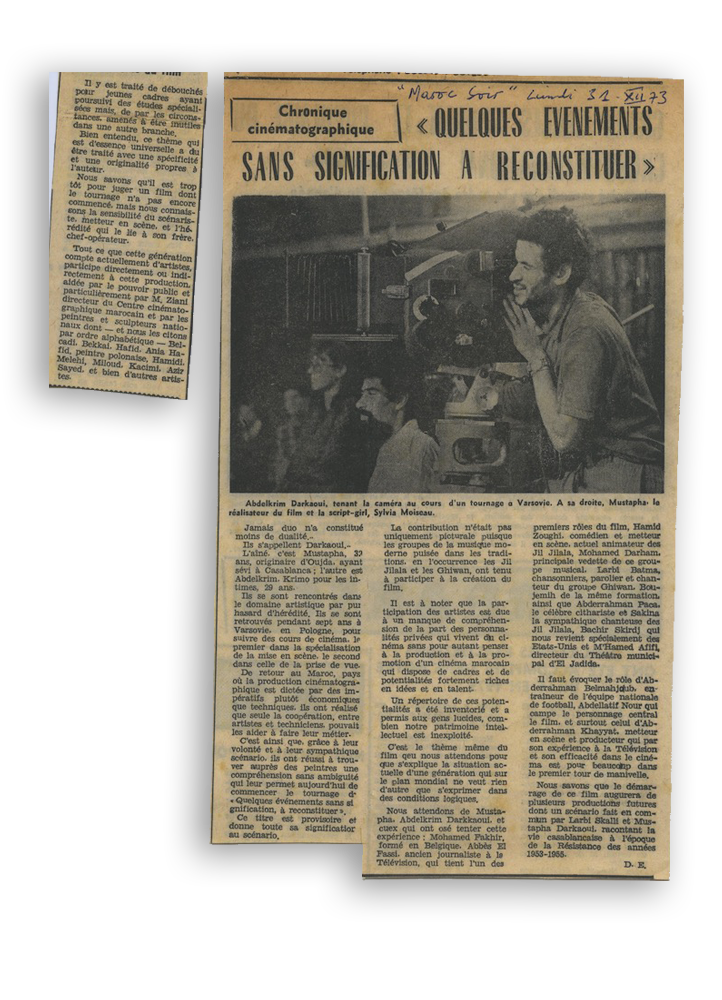
︎ Quelques évènements sans signification à reconstituer [Reconstructing Some Meaningless Events], Maroc Soir newspaper, 1973


︎ Pour une dynamique du cinéma collectif [Towards collective filmmaking], Mostafa Derkaoui interviewed by the poet Mostafa Nissaboury
INTEGRAL N°8, March - April 1974
INTEGRAL N°8, March - April 1974
Copyright © 2020 / Léa Morin — CINIMA3 / Talitha

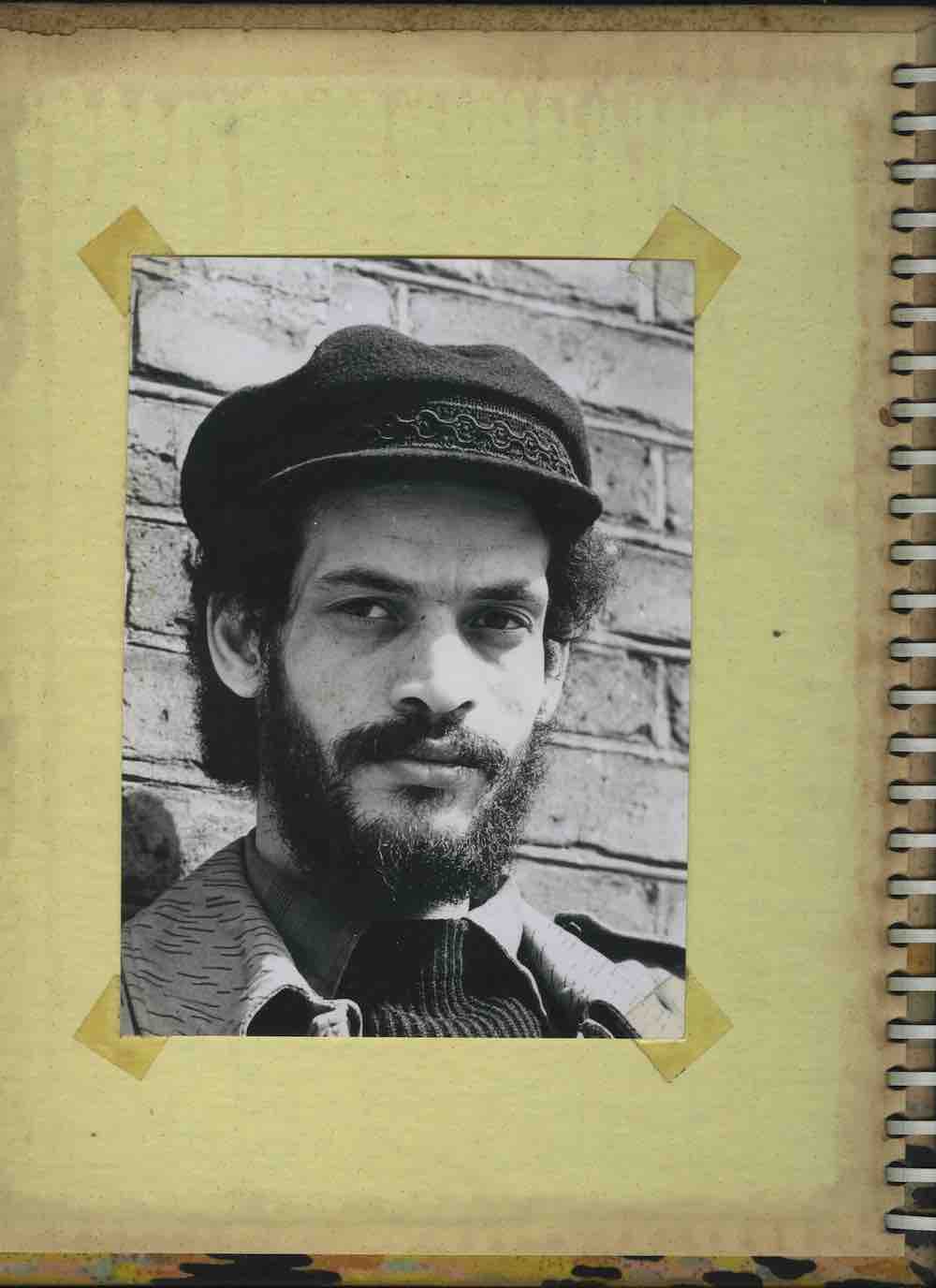
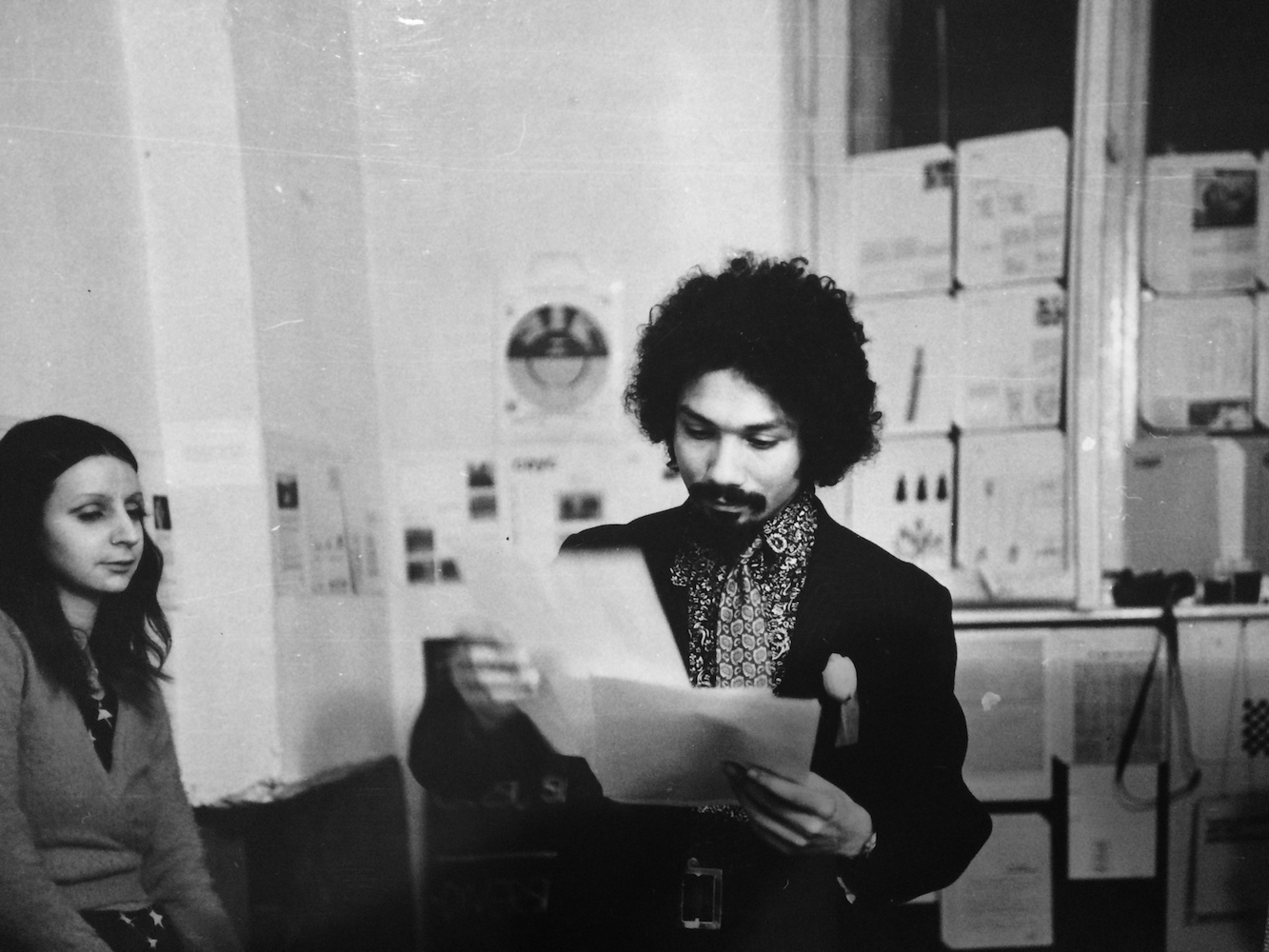
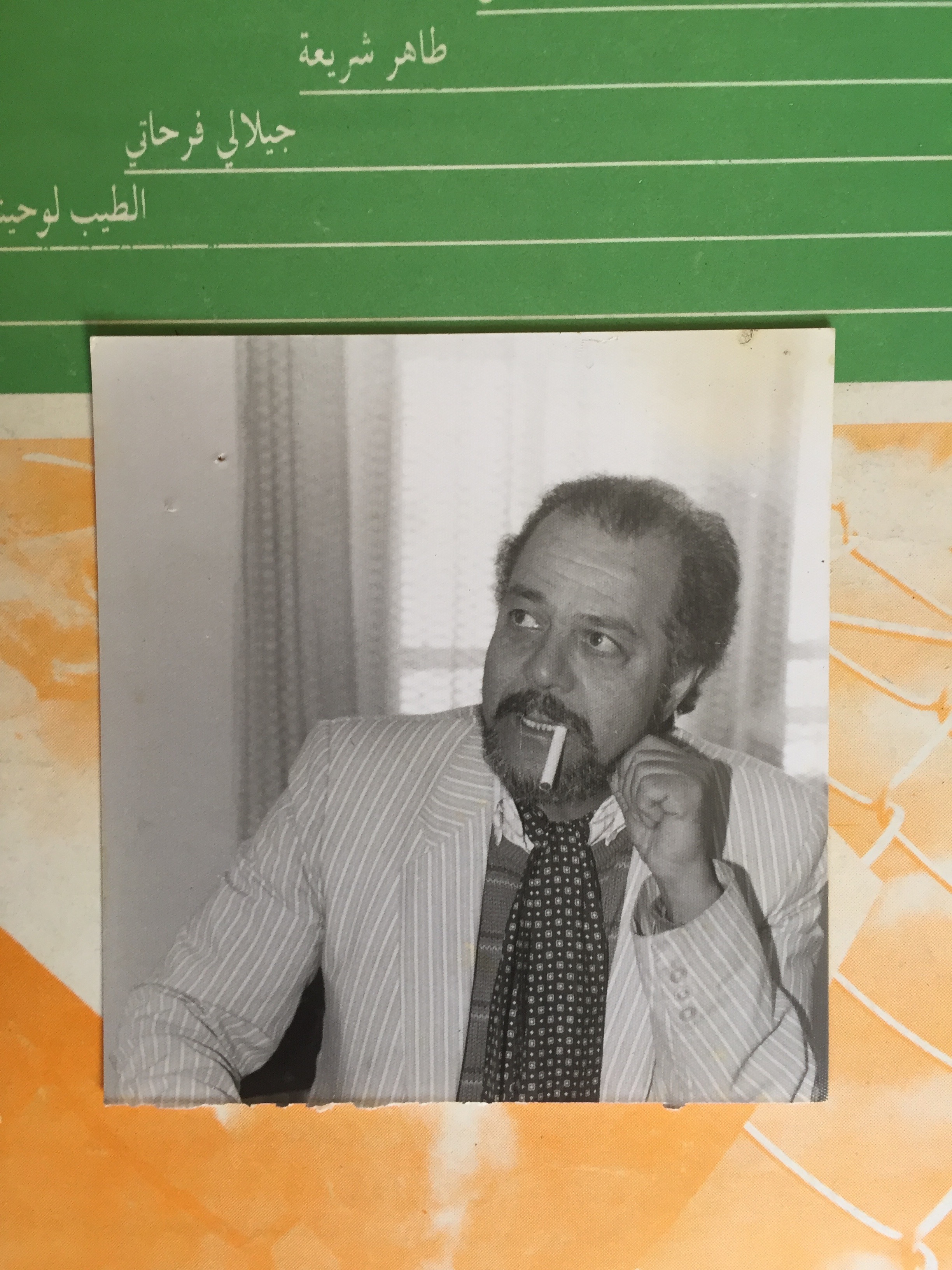 4.4
4.4 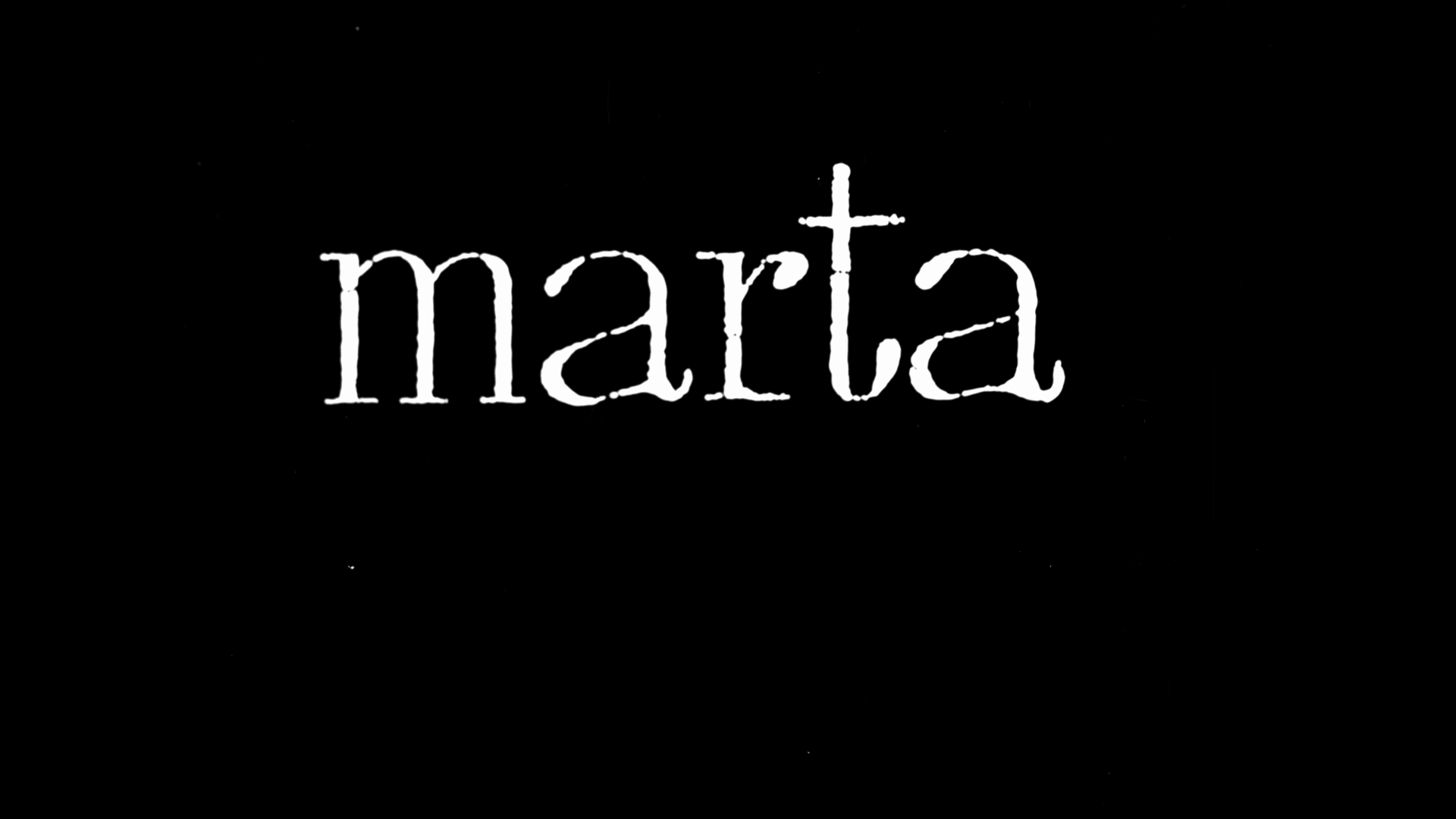 4.6
4.6 